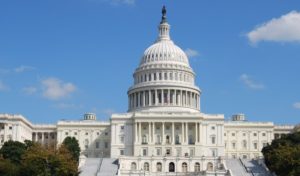Don’t Be Surprised By The No Surprise Act!
Posted by donna@healthlawcenterplc.com in Dec, 2021

The federal No Surprise Act goes into effect on January 1, 2022. The intent of the Act is to protect patients from unanticipated medical bills as a result of gaps in coverage for emergency services and certain services provided by out-of-network health care providers at in-network facilities. Also, licensed health care providers and facilities, regardless […]

Category: News & Updates, Reimbursement
Telehealth Services Between Health Care Providers and the Public During the COVID-19 Public Health Emergency
Posted by donna@healthlawcenterplc.com in Mar, 2020

The Office for Civil Rights (OCR) at the Department of Health and Human Services has issued a telehealth Notice during this COVID-19 public health emergency. During the current public health emergency OCR will exercise its enforcement discretion and will not impose penalties for noncompliance with HIPAA Rules if healthcare providers provide telehealth services through remote […]
Mental Health Access Improvement Act Re-Introduced In Congress
Posted by donna@healthlawcenterplc.com in Jun, 2019

The Mental Health Access Improvement Act (S. 286) was re-introduced by Senator Stabenow (D-MI) and Senator Barrasso (R-WY), which will allow mental health counselors to bill Medicare for treating older adults with mental health conditions. The American Mental Health Counselors Association was instrumental in the introduction of S. 286. In the House, Rep. Thompson (CA-05) […]

Category: Licensure, Medicare, Mental Health, Michigan Legal Updates, News & Updates, Reimbursement
Oops, They Did It Again: Will Your Medicare Part B Reimbursement Decrease?
Posted by donna@healthlawcenterplc.com in Sep, 2018

Every year the Centers for Medicare and Medicaid Services proposes Medicare Part B reimbursement rules for the upcoming year. The 2019 proposed rule changes could affect the amount of reimbursement physicians, physician assistants, nurse practitioners, clinical nurse specialists, and certified registered nurse anesthetists receive. If these proposed rules are finalized, clinicians could lose as much […]

 Post Tagged with
Post Tagged with 
